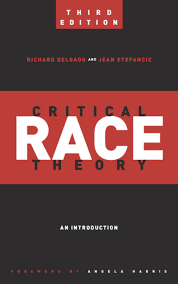By Pamela Hilliard Owens
Welcome to 2022, and yet another year of the right-wing attempting to whitewash history and to silence any and all liberal and progressive voices in all areas of American life.
Today’s Republican Party has all but given up talking about policies and it certainly does not advocate for policies and programs that help the average American. The party has devolved to be about nothing except conspiracy theories and culture war issues.
One of the current “culture war issues” that the Republicans are salivating over is “Critical Race Theory (CRT).” To the Republicans and other far-right people, CRT is the teaching of ANYTHING that has to do with race relations of any kind in this country and ANYTHING that may make white people feel “uncomfortable.”
Before I discuss what CRT is and is not, I want to remind you that I am first and foremost an educator. I knew in 2nd grade that I wanted to be an English teacher, and that is exactly what I became in my first career. For about 40 years, I taught all grades from Pre-K through university-level courses—primarily middle school and high school, so I come to this topic primarily through the lens of a teacher.
In my next article here in this newsletter, I will discuss how I taught American History when I was a teacher.
But for now…
What is Critical Race Theory?
About 40 years ago, educators and legal scholars, including late attorney Derrick Bell, university professor Kimberlé Crenshaw, and university professor Richard Delgado designed a framework for the legal analysis of the premise that racism has been, and still is embedded in the legal systems and policies of the United States of America since its founding.
The name “Critical Race Theory” actually explains what it is: “Critical” means “the study of,” as in a critique. “Race,” yes this is about race in America. “Theory” means just that: it is a theory or a system of ideas intended to explain something.
Critical Race Theory is actually a high-level academic course taught in law schools and Ph.D. level classes. It never has been a course taught in Master’s level classes, undergraduate classes, and certainly not in K-12 schools.
The ideas expressed through CRT have, however, been influential in shaping the thinking of sociologists, politicians, students of the humanities, and teachers at all levels.
Remember: CRT posits that racism is now and always has been systemic in the laws, politics, and policies of America. No matter how hard some people try to deny it, this is a true fact.
What Critical Race Theory is Not
Critical Race Theory is often confused (rightly and wrongly) with the practice of “culturally relevant teaching,” which emerged in the 1990s and seeks to support, with intellectually rigorous teaching methods, that all students’ ethnic and racial backgrounds are important and also helps students to identify and critique many of the causes of different forms of inequality in their own lives.
Critical Race Theory is NOT anything that even mentions race, or Black History, or racism in all of its forms, the Civil Rights Movement, or any accomplished Black person. Nor is it how many white people in this have country sought, since the very beginning, to limit the rights and actual humanity of Blacks and other racial minorities, including Hispanic, Asian, and Indigenous people.
In 2020, “Juneteenth,” a commemoration of the emancipation of African-American slaves in 1865, was formally designated as a federal holiday. Today Juneteenth commemorates African American freedom and emphasizes education and achievement. However, according to anti-CRT activists, teaching or even mentioning the reason why Juneteenth is/was even necessary should be outlawed.
The Anti-CRT “Definition” of Critical Race Theory and How We Can Change the Narrative
According to the NAACP Legal Defense Fund, the actual term Critical Race Theory has been “…co-opted by opponents as a catch-all and rallying cry to silence any discussions about systemic racism, ban the truthful teaching of American history, and reverse progress toward racial justice. The term has been unjustifiably used to include all diversity and inclusion efforts, race-conscious policies, and education about racism, whether or not they draw from CRT.”
For example, in Florida, present governor Rick DeSantis is actually proposing to require that teachers wear microphones and have video cameras installed in classrooms to ensure that NOTHING about race is taught and that teachers who even mention ANYTHING race-related (positive or negative) can be sanctioned or even fired.
Because so many laws are now proposed or actually in effect to discourage and outlaw the teaching of ANYTHING related to race, America’s racial history, or the history of anyone in America who is not a white, straight, Christian male, it is up to the rest of us to fight the anti-CRT people at every turn.
It will not be easy and it will not be quick.
But it IS totally necessary, because these people and these anti-CRT laws are meant to deny the truth about our nation’s history, silence dissent, and punish those who speak the truth to counter whitewashed falsehoods.
References
Basic Tenets of Critical Race Theory: https://www.britannica.com/topic/critical-race-theory/Basic-tenets-of-critical-race-theory#ref1295606
The Man Behind Critical Race Theory: https://www.newyorker.com/magazine/2021/09/20/the-man-behind-critical-race-theory
Kimberlé Crenshaw: the woman who revolutionised feminism—and landed at the heart of the culture wars. https://www.theguardian.com/society/2020/nov/12/kimberle-crenshaw-the-woman-who-revolutionised-feminism-and-landed-at-the-heart-of-the-culture-wars
Richard Delgado: American Legal Scholar. https://www.britannica.com/biography/Richard-Delgado
What is Juneteenth? https://www.juneteenth.com/history/



